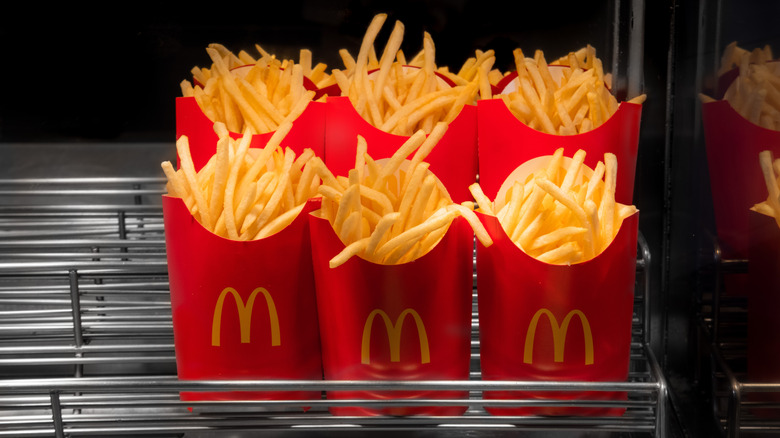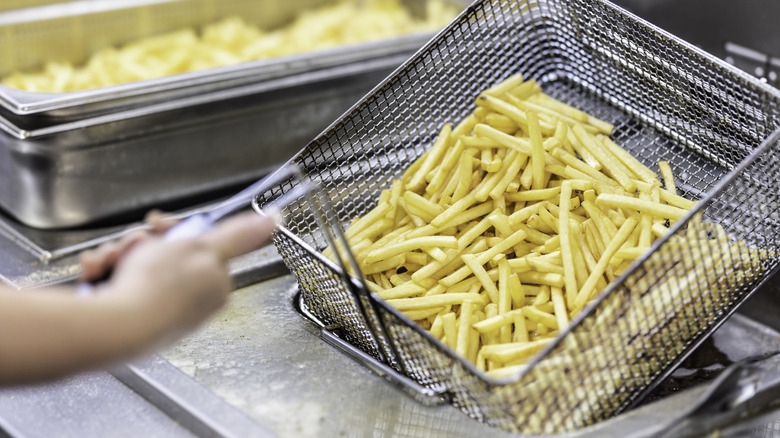We Finally Know The Secret Behind McDonald's Fries That Makes Them So Irresistible
There's a reason McDonald's fries have built a cult following that few fast-food sides can touch. They aren't just popular — they're engineered to be irresistible. From the potato varieties chosen to the way each fry is processed before it ever hits a fryer, everything is designed to deliver that crunch-meets-fluff texture that keeps customers hooked. McDonald's leans on potato types like Russet Burbank and Shepody, prized for staying light in the middle while crisping perfectly on the outside. To make things even more consistent, the fries get a whisper of dextrose — a simple sugar — that helps them brown evenly and adds the faint sweetness that fans can't quite put their finger on.
Of course, there's also the more controversial side of their flavor. For years, McDonald's has acknowledged that processors pre-cook fries in oil infused with natural beef flavoring, a detail that once fueled the McDonald's fries scandal. The early 2000s lawsuit from vegetarian and Hindu groups over the lack of disclosure ended in a multimillion-dollar settlement. While the additive remains part of the formula, the company has been transparent about it ever since. It's all part of the bigger picture, though — there's always been something about McDonald's fries that only a true fan would know, and it goes well beyond salt. Even before we get into the brain science, it's clear McDonald's has perfected a formula that hits every note of craveability.
The psychology behind the craving
If flavor alone were the story, McDonald's fries might have been just another fast-food side. What really makes them so hard to resist is the way they're engineered to keep your brain wanting more. Researchers call it the "bliss point" — the exact balance of salt, fat, and a hint of sweetness that hits the perfect spot — and McDonald's hits that formula with precision. The salt perks up your taste buds, the dextrose adds a trace of sweetness, and the oil blend delivers richness, creating a sensory trifecta that's almost impossible to ignore.
The result doesn't just register on your tongue — it registers in your brain, too. Eating McDonald's fries kicks off a dopamine rush, giving your brain the signal that you've done something worth repeating, and carbohydrates in the potatoes can also boost serotonin, the so-called "happiness hormone." That chemical reward loop is the same mechanism that makes junk food so craveable, reinforcing the desire to reach for another fry even when you're already full.
Layer on the texture, and the experience is complete. The thin cut means more surface area for crunch, while the careful frying process ensures they don't go limp too quickly. It's why McDonald's fries have way more ingredients than you may think — not necessarily in a bad way, but in a calculated one. From the type of potato to the sugar coating to the oil chemistry, every detail is designed to make the fries taste better, feel better, and keep you reaching for the bottom of the carton.

